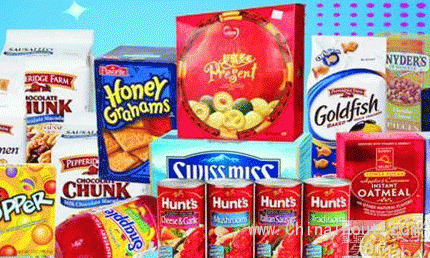
隨著我國(guó)居民生活水平的不斷提高,,對(duì)進(jìn)口食品需求逐年增加,。據(jù)國(guó)家質(zhì)檢總局統(tǒng)計(jì),2014年,,我國(guó)進(jìn)口食品[食品包括:肉類及制品(含臟器),、水生動(dòng)植物產(chǎn)品、乳及乳制品,、蛋類及產(chǎn)品,、蜂產(chǎn)品、腸衣,、食用油,、大米,、花生、蔬菜及產(chǎn)品,、中藥材,、罐頭、食用蛋白及制品,、面粉及糧食制品,、雜糧、油籽油料類,、干堅(jiān)果,、籽仁類、茶葉,、咖啡可可原料,、飲料、酒類,、糖類,、蜜餞類、調(diào)味品,、糕點(diǎn),、特殊膳食用食品、保健食品,、轉(zhuǎn)基因食品等,,但不包括作為食品原料的大豆、小麥等和作為飼料原料的玉米等農(nóng)產(chǎn)品,。]已達(dá)482.4億美元,,10年間增長(zhǎng)了4.2倍,年均增長(zhǎng)率達(dá)17.6%,。
其中,,食用植物油、乳粉,、肉類,、水產(chǎn)品等大宗產(chǎn)品進(jìn)口量分別達(dá)854.1萬(wàn)噸、149.9萬(wàn)噸,、279.2萬(wàn)噸,、334.8萬(wàn)噸,進(jìn)口食品安全已經(jīng)成為保障我國(guó)消費(fèi)者安全的大事,。而今年世界衛(wèi)生日的主題正是“食品安全”,,世界衛(wèi)生組織表示,每年有數(shù)百萬(wàn)人因食用不安全食品而患病,,還有約200萬(wàn)人死亡,,希望通過(guò)今年的世界衛(wèi)生日,,提醒人們關(guān)注食品安全的重要性。
2014年,,我國(guó)從192個(gè)國(guó)家或地區(qū)進(jìn)口的食品104.2萬(wàn)批,、3514.1萬(wàn)噸、482.4億美元,,同比分別增長(zhǎng)7.9%,、7.3%和3.3%。其中進(jìn)口食品貿(mào)易額列前10位的分別為:歐盟,、東盟,、新西蘭、美國(guó),、澳大利亞,、巴西、加拿大,、俄羅斯,、阿根廷和韓國(guó);乳制品,、油脂及油料,、水產(chǎn)及制品、肉類,、糧谷制品,、酒類、糖類,、飲料等為主要進(jìn)口食品種類,。(中國(guó)進(jìn)出口網(wǎng))
On April 7, the 66th World Health Day, the AQSIQ on its official website published a white paper about "2014 National Quality and Safety of imported Food", and notified 2014 imported food safety situation in China. Data shows that in 2014, China's food imports reached $48.24 billion, an increase of 4.2 times in 10 years, an increase of 17.6% on average per year.
With the continuous improvement of living standards, the demand for food imports increased year by year. According to the AQSIQ statistics, in 2014, China's imported food [foods include: meat and meat products (including organ), aquatic animal and plant products, milk and dairy products, eggs and egg products, bee products, sausage, cooking oil, rice, peanuts, vegetables and vegetable products, herbs, canned food, edible protein and products, flour and grain products, cereals, oilseeds, dry nuts, kernel, tea, coffee, cocoa, beverages, alcohol, sugar, candied fruit, spices, pastries, food for special dietary uses, health food, genetically modified food, etc., but food ingredients soy, wheat, feed ingredients corn and other agricultural products not included] Reached $48.24 billion, an increase of 4.2 times in 10 years, an increase of 17.6% on average per year.
Among them, edible vegetable oil, milk powder, meat, aquatic products and other bulk goods imports respectively amounted to 8.541 million tons, 1.499 million tons, 2.792 million tons, 3.348 million tons, imported food safety has become a major event in the protection of consumer safety. The theme of this year's World Health Day is the "food security", the World Health Organization says there are millions of illness due to consumption of unsafe food, there are about 200 million deaths per year, it hopes this year's World Health Day can draw people’s attention to the importance of food safety.
In 2014, from 192 countries and areas China imported food 1.042 million batches, 35.141 million tons, 48.24 billion US dollars, an increase of 7.9%, 7.3% and 3.3%. The first 10 countries and organizations of imported food trade are: the European unio, ASEAN, New Zealand, the United States, Australia, Brazil, Canada, Russia, Argentina and South Korea; the main imported food categories include dairy products, fats and oils, fish and aquatic products, meat, grains products , alcohol, sugar, beverages.











